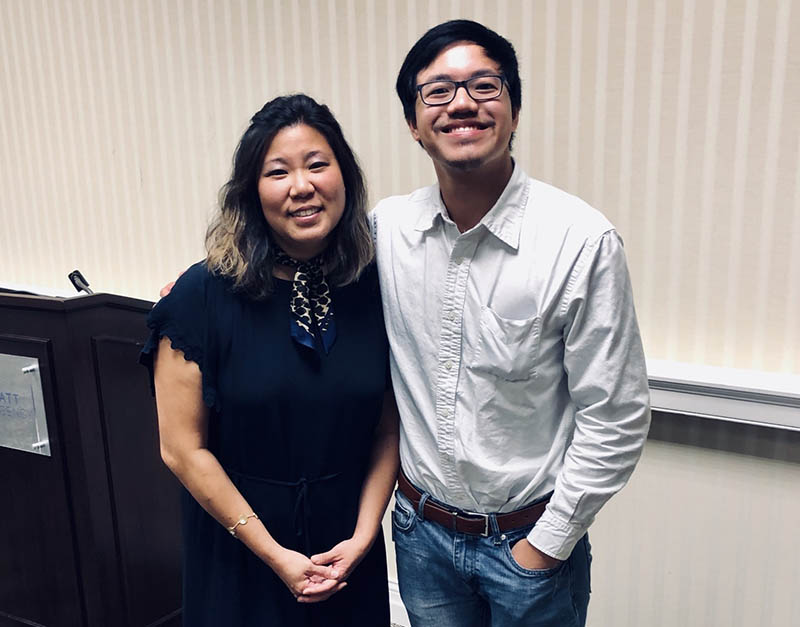After grieving mother's death, teen commits to helping others
By Diane Daniel, American Heart Association News

Growing up in Wichita, Kansas, Ngoc Vuong had a wide circle of Vietnamese friends to play with in his neighborhood.
His parents had left Vietnam in the 1990s to build a new home in the U.S., making Vuong and his two older sisters first-generation Americans.
"A lot of my summers were spent hanging out with people who looked like me," Vuong said. "At school, it was a different story. I struggled with my identity. Am I really Vietnamese? Am I really American?"
What Vuong, 20, discovered as he grew up was that he embraced being Vietnamese American. He took on leadership roles, serving in the student council and as student body president.
His guiding force was his mother. In Vietnam, she had to forego college and work to support her siblings after her father was sent to a communist prison camp and her mother was arrested. Despite those hardships, she went on to serve others.
"My mom taught me the importance of kindness and to help those less fortunate," he said.
When Vuong was only 15 and a sophomore, he lost his role model and nurturer. His mother died at age 46 from a ruptured brain aneurysm. Her death sent him into a depression.
"For a year after, I felt like I was leading a double life," said Vuong, now a rising junior at Wichita State University, where he studies psychology, with concentrations in public health and economics. "I was still functioning at school, but I would come home and just crash. It was hard to see a way out."
He was grateful for having a supportive family and teachers, but he also needed professional help for the depression, which he sought after several months in pain.
"In the Vietnamese community, and really in general, there's that stigma that comes with seeking mental health treatment," he said.
Although Vuong already had been taking on leadership roles, his focus had been more about being successful as opposed to making a difference, he said. "My mom's death gave me a new purpose in life. It wasn't enough to live a successful life; I wanted to live a significant one."
Since then, Vuong has worked tirelessly on several initiatives to help reduce the stigma around mental health, especially related to drug addiction. Although he hasn't personally been affected by addiction, he's seen its effects on students, friends and in the Wichita community.
He's particularly interested in helping underserved communities because "they are excluded from the decision-making table."

His first effort resulted in ICTeens in Mind, a student-led coalition that supports youth affected by mental illness and promotes awareness. It has since been folded into the nonprofit Partners for Wichita, where Vuong works part-time as a community mobilizer.
Vuong, who has been awarded several scholarships, including from the American Heart Association's EmPowered to Serve program, is working on two new grassroots projects. City Voices and Healing Kansas both address mental health and addiction issues through art, storytelling and civic engagement. He also was tapped to serve on the Wichita mayor's Civil Rights Advisory Council, and he handles social media for school board member Stan Reeser.
Reeser met Vuong in 2018, after hearing Vuong speak at his high school graduation ceremony.
"I was so impressed with his passion, and I reached out to him," said Reeser, who now uses Vuong as a sounding board on issues relating to youth.
Vuong also helped Reeser with his re-election campaign in 2019, first with social media, but Reeser said his young charge grew into the role of campaign manager.
"He's definitely wise beyond his years," Reeser said. "He has this perfect balance of feeling passionate about issues but at the same time he's very reasonable and loves to look at data."
Vuong, who hopes to become a clinical psychologist and researcher, is assisting on a project at the University of Kansas School of Medicine in Wichita examining disparities in mental health treatment.
"It's crucial we look at the gaps there are in access and services," he said. "And equally important, how we will fill them."
If you have questions or comments about this story, please email [email protected].





